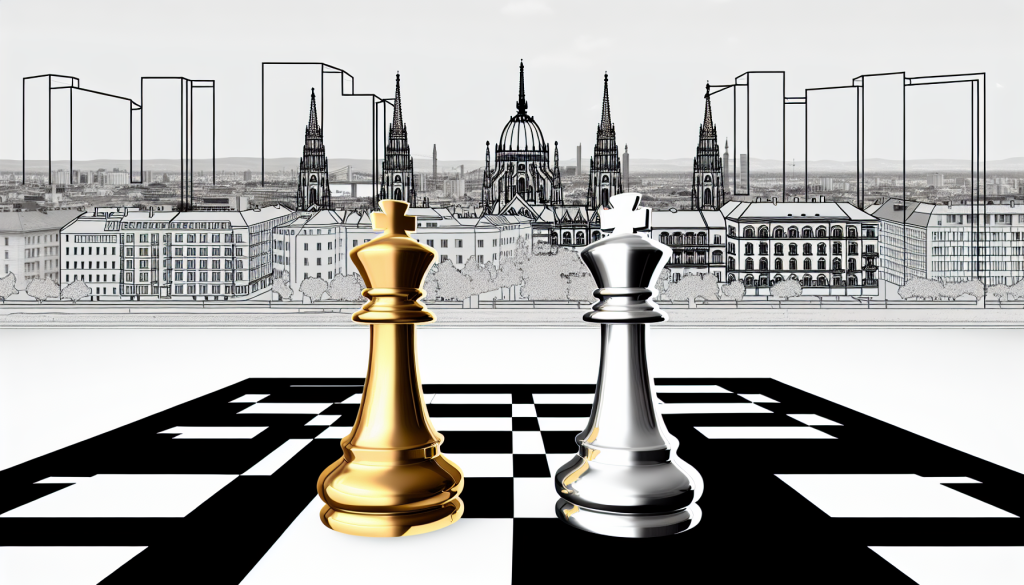Hungarian PM Welcomes Trump-Putin Meeting in Budapest
A Historic Encounter
In a wave of optimism, Hungarian Prime Minister Viktor Orbán expressed his enthusiasm over the recent announcement of a scheduled meeting between American President Donald Trump and Russian President Vladimir Putin in Budapest. Orbán shared his sentiments on social media platform X, declaring, “The planned meeting between the American and Russian presidents is great news for the peace-loving people of the world. We are ready!” This statement reflects Hungary’s strategic positioning and the importance it places on being a central player in European diplomacy.
Russia’s Perspective on Peace Efforts
Following a significant phone call between Trump and Putin, Russian special envoy Kirill Dmitriev accused the UK and the EU of attempting to undermine peace efforts in the region. In his post, Dmitriev asserted, “UK and EU warmongers try very very hard to derail peace prospects. But dialogue and peace and the US-Russia cooperation will prevail.” This rhetoric highlights Russia’s ongoing frustrations with Western nations, perceiving them as obstacles in their pursuit of a peaceful resolution to the Ukraine conflict.
Prospects for Broader Diplomacy
Notably, Trump’s spokesperson, Karoline Leavitt, indicated that the former president remains hopeful about a potential meeting between Putin and Ukrainian President Volodymyr Zelensky. Despite previous commitments by Zelensky to engage in talks, Russia has yet to respond affirmatively. Trump’s vision of facilitating dialogue continues to shape his diplomatic strategies, aiming to reconcile longstanding tensions and conflicts.
Details of the Upcoming Meetings
Trump referred to his recent conversation with Putin as “very productive”, emphasizing that the two leaders will convene in Budapest soon to discuss strategies for ending the ongoing war in Ukraine. On his platform, Truth Social, Trump mentioned that Putin commended him for his efforts in achieving “peace to the Middle East,” suggesting that such successes could similarly influence the conflict in Ukraine. Plans for high-level discussions involving American and Russian advisors, including Secretary of State Marco Rubio, are also on the horizon, underscoring the strategic importance of this diplomatic effort.
Ukraine’s Ongoing Struggles
Amid these diplomatic exchanges, Ukraine is facing critical challenges. The national energy operator Ukrenergo has announced emergency power cuts across the country due to relentless Russian attacks on its energy infrastructure. The recent surge in aggression has intensified the humanitarian crisis, raising urgent concerns about the resilience of Ukraine’s energy systems and civilian safety.
EU Defense Initiatives
As tensions persist, the European Union has articulated its broader strategy to bolster defenses against potential Russian threats. The European Commission has laid out a five-year plan that includes the European Drone Defence Initiative, intended to enhance capabilities in countering aerial threats. EU foreign policy chief Kaja Kallas emphasized that while current threats may be manageable, the geopolitical landscape necessitates ongoing preparedness for future challenges.
The Broader Context of U.S.-Russia Relations
The anticipated meeting between Trump and Putin occurs within the larger context of U.S.-Russia relations, historically characterized by rivalry and conflict. Following Trump’s engagements with various leaders to stabilize the Middle East, he now turns his focus back to Ukraine, aiming to leverage international diplomacy to facilitate peace. Ultimately, the upcoming discussions in Budapest may serve as a pivotal moment in shaping the future of European security and the long-term stability of the region.
Insights on Military Support
In the background of these diplomatic overtures, there are indications that the U.S. is reconsidering its military support for Ukraine. Trump hinted at possible discussions regarding the supply of advanced weaponry, including Tomahawks, to reinforce Ukraine’s defense capabilities while pressuring Russia to engage in constructive dialogue. This aspect reveals the complexity and multifaceted nature of the ongoing conflict, where military considerations intersect with diplomatic efforts aimed at securing peace.
Final Remarks
As the world watches these developments unfold, the intersection of diplomacy, military strategy, and international relations will be critical. With each statement, phone call, and forthcoming meeting, global stakeholders are reminded of the fragile nature of peace and the diplomatic endeavors essential in navigating these turbulent political landscapes.

